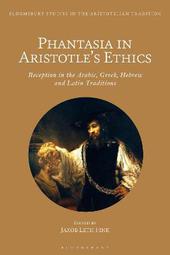
|
Phantasia in Aristotle's Ethics: Reception in the Arabic, Greek, Hebrew and Latin Traditions
Paperback / softback
Main Details
Description
In the Nicomachean Ethics, Aristotle suggests that a moral principle 'does not immediately appear to the man who has been corrupted by pleasure or pain'. Phantasia in Aristotle's Ethics investigates his claim and its reception in ancient and medieval Aristotelian traditions, including Arabic, Greek, Hebrew and Latin. While contemporary commentators on the Ethics have overlooked Aristotle's remark, his ancient and medieval interpreters made substantial contributions towards a clarification of the claim's meaning and relevance. Even when the hazards of transmission have left no explicit comments on this particular passage, as is the case in the Arabic tradition, medieval responders still offer valuable interpretations of phantasia (appearance) and its role in ethical deliberation and action. This volume casts light on these readings, showing how the distant voices from the medieval Arabic, Greek, Hebrew and Latin Aristotelian traditions still contribute to contemporary debate concerning phantasia, motivation and deliberation in Aristotle's Ethics.
Author Biography
Jakob Leth Fink is a Postdoctoral Fellow in the 'Representation and Reality in the Aristotelian Tradition' research program at Gothenburg University, Sweden.
ReviewsThe range of material is one of the volume's greatest strengths ... Fink deserves praise for bringing together experts on these traditional strands in order to gain new and renewed insights on a lively topic in Aristotle. * Notre Dame Philosophical Reviews * [A] welcome and well-argued enterprise to discuss the fate of a particularly interesting Aristotelian notion through the ages. * Bryn Mawr Classical Review *
|